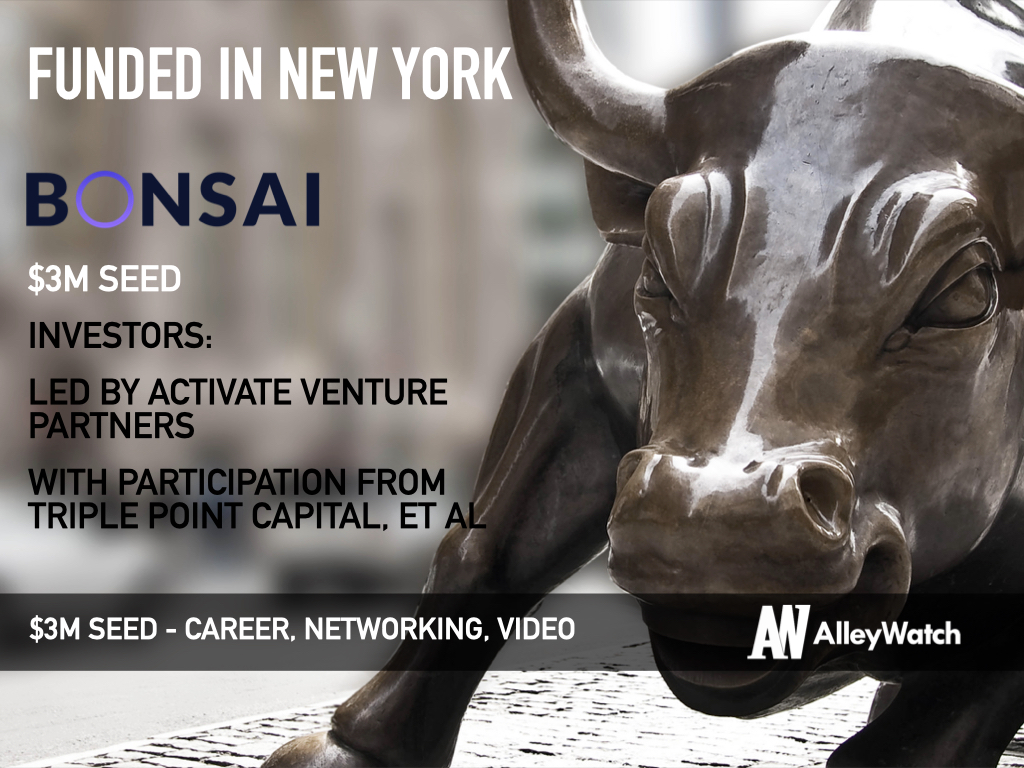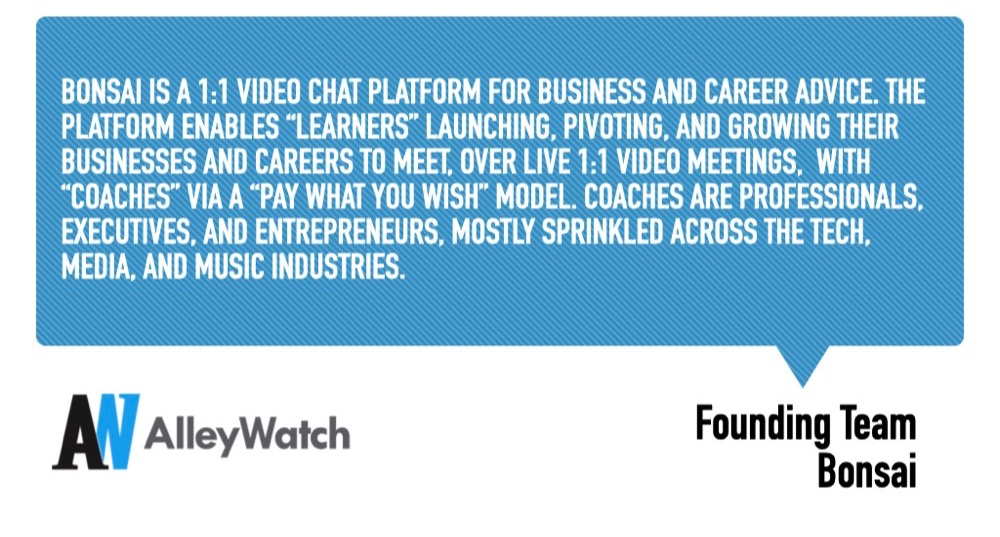The strength of your network is often a determinant of business and professional success but what happens when the pandemic limits in-person networking opportunities. Like much of the rest of the world, networking has moved into the digital era. Bonsai is a video chat platform focused on connecting individuals with esteemed professionals for career and business advice. The platform uses a “pay what you wish model” making it accessible for those that are building their businesses while giving establishes professionals a way to earn and give back (proceeds can be donated to charity). Professional have expertise across an array of industries but there is a concentration in tech, media, and music.
AlleyWatch caught up with Cofounder and COO Jake Rosenfeld and Cofounder and CEO Patrick Sullivan to learn more about launching in during the pandemic, the company’s product offering, future plans, latest round of funding, and much, much more.
Who were your investors and how much did you raise?
Activate Venture Partners led the round and was joined by TriplePoint Capital as well as top angel investors who hail from companies such as Google, Facebook, and Sony Music.
We raised a $3M seed, which brings our total funding to $5.3M.
Tell us about the product or service that Bonsai offers.
Bonsai is a 1:1 video chat platform for business and career advice. The platform enables “learners” launching, pivoting, and growing their businesses and careers to meet, over live 1:1 video meetings, with “coaches” via a “pay what you wish” model. Coaches are professionals, executives, and entrepreneurs, mostly sprinkled across the tech, media, and music industries, such as The Orchard (Sony) founder, Richard Gottehrer, former Facebook executive, Ellen Silver, and Google Drive founder, Jonathan Rochelle.
What inspired the start of Bonsai?
The need to make elite professional advice and networking more accessible, equitable, and modern.
How is Bonsai different?
We are reengineering how people build professional networks.
From a platform perspective, the differentiator is that our learners set a price when requesting a 1:1 with a coach, so the pricing power is in the hands of our demand side (we’ve seen $0 meetings all the way up to $500+ meetings)
To distribute access to those who need it most, the company has partnered with organizations such as Jamie Dimon’s New York Jobs CEO Council, Google for Startups’s Patriot Boot Camp, and the music industry’s Women in Music.
What’s your business model?
Two-sided marketplace:
- Demand-side – “learners” looking for advice
- Supply-side – “coaches” giving advice
How has COVID-19 impacted the business??
- Increased demand for business and career advice
- Increased level of comfort with 1:1 video meetings as a key way to network and meet with new (and existing) professional relationships
We launched a few weeks into COVID hitting the US, so we are very much a brand that has been built through the pandemic.
What was the funding process like?
Fantastic process. Between our VC networks, we kept the raise very much “in the family”. Activate Venture Partners backed Patrick’s first company, RightsFlow, which he later sold to Google, so the relationship was already in place!
What are the biggest challenges that you faced while raising capital?
We would have loved to do in-person meetings with folks.
What factors about your business led your investors to write the check?
- Founder-market-fit.
- A world-class team tackling a very digestible and common problem all of us have experienced or have exposure to – lack of democratization when it comes to networking and accessing professional advice.
- The beginnings of a KICK ASS product!
What are the milestones you plan to achieve in the next six months?
What advice can you offer companies in New York that do not have a fresh injection of capital in the bank?
Prove out your theses in the most cost-efficient ways possible – do surveys, interview potential users, etc. Try to prove the “core” of your idea before spending money making that idea user-friendly, pretty, sleek, and tech-enabled.
Prove out your theses in the most cost-efficient ways possible – do surveys, interview potential users, etc. Try to prove the “core” of your idea before spending money making that idea user-friendly, pretty, sleek, and tech-enabled.
Where do you see the company going now over the near term?
We want to become THE platform for 1:1 professional advice and intimate professional networking.
What’s your favorite outdoor dining restaurant in NYC?
Loring Place on 8th St!






